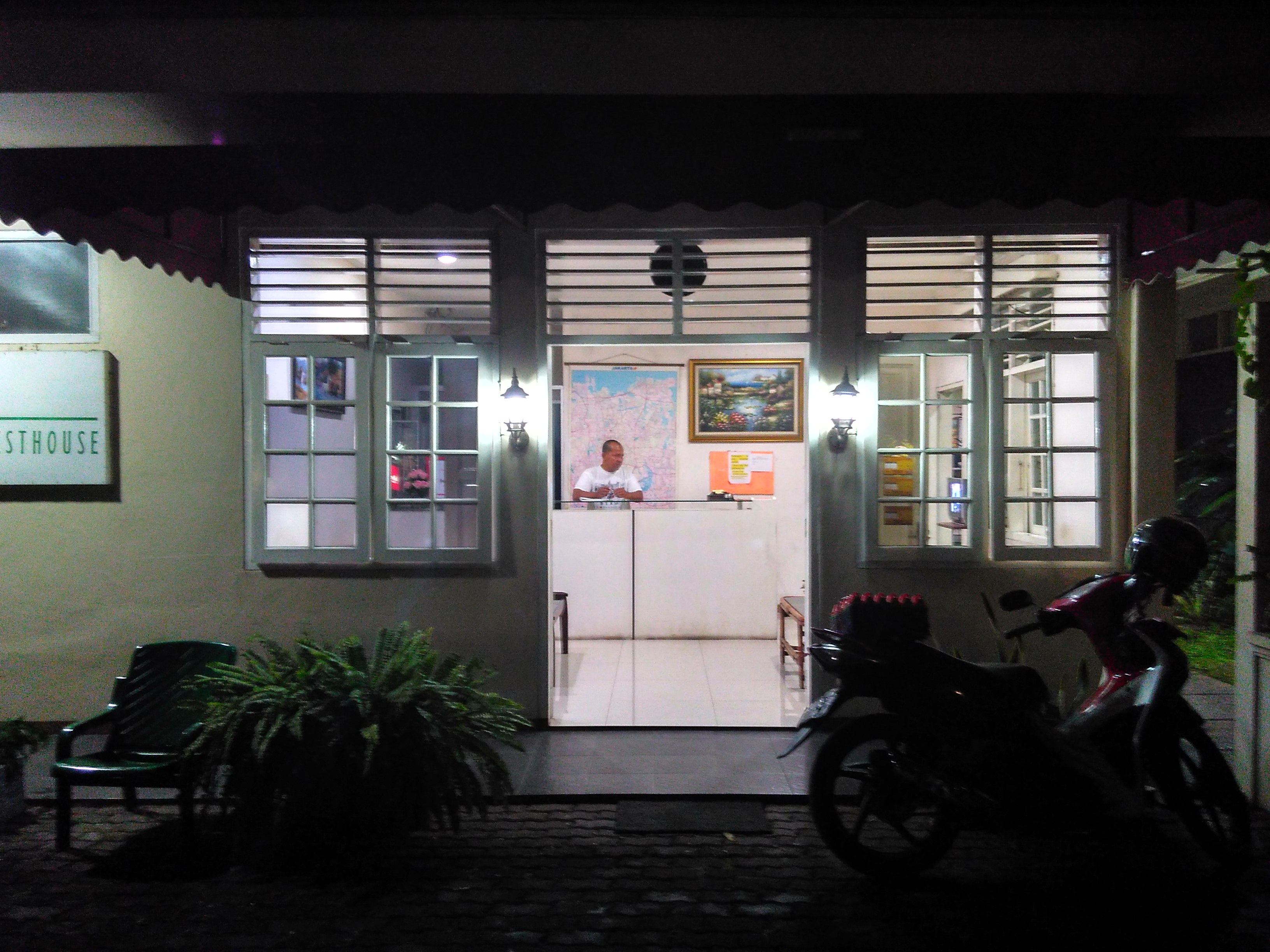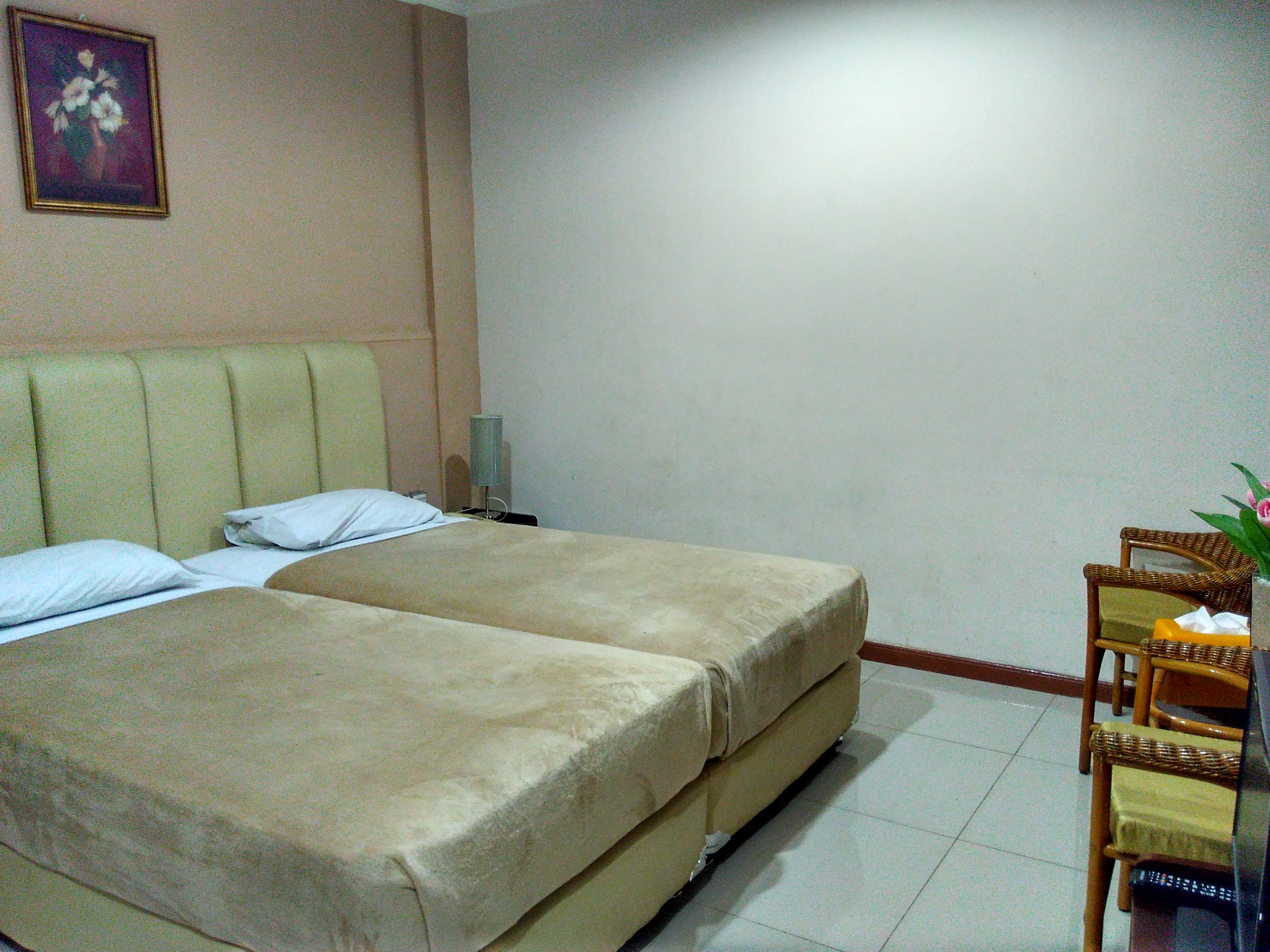
Nida partner hotel reception desk. Some hotels partner with more than one budget hotel startup.
“I’m still working here, but honestly I’m seeking another job. I can’t describe what we are doing – we are working but not really working.”
This is how Alvin*, a long-term employee at budget hotel startup Nida Rooms described his situation mid-October. Employee morale had hit rock bottom.
After Tech in Asia reported about the startup’s financial troubles in September, things got even worse for a while.
Employees, including Alvin, had been waiting for their salaries for over two months. Complaints from partners were piling up too. “The payments to hotels were also delayed. And one by one, hotels asked to cancel their partnerships with us,” Alvin told us.
I can’t describe what we are doing – we are working but not really working.
Despite the negativity, the startup’s CEO Kanesh Avili thinks he can turn things around.
When we spoke in early November, Kanesh said Nida just locked in another round of funding, without detailing the terms of the deal. He said the money came from a “world-class investor” based in Singapore.
Tech in Asia’s contacts confirm that their outstanding salaries have finally been paid.
“Over the past three months we went through a tough time,” Kanesh admits.
But now, he claims, “Nida will have the financial muscle to stamp its leadership position in Asia.”
Uncontrolled burn

I spent a night at this Nida hotel in Central Jakarta as part of this investigation.
There are several reasons to believe Nida will need more than cash to become the successful company it strives to be.
One is that the startup is burning cash at an uncontrolled pace. It got to the point where it couldn’t pay employees despite starting out with sizable funding.
To recap: Nida took up operations in October 2015 with an initial US$1.5 million from a seed round, followed by another US$4.2 million at a US$11 million valuation in April, at least according to the press release received by Tech in Asia.
Kanesh later said funds had been paid by investors in various stages over the course of months. Overall, he insists, the startup had US$5.6 million at hand in its first round.
CyberAgent and Convergence Ventures, cited as lead investors, confirm this. “The company raised a total of US$5.6 million since inception and all funds are fully subscribed,” CyberAgent’s Steven Vanada says.
The company’s highest expenses are payroll, hotel branding, and vendors like photographers, Kanesh explains. At its peak, the startup had some 300 employees. Now it has cut back to 220. It operates regionally in Indonesia, Malaysia, Thailand, and the Philippines.
Nida must have spent much of the US$5.6 million from October 2015 to mid-2016.
As we learned from employees and the emails and documents they made available to Tech in Asia, salary payment delays started roughly around July. Vendors claimed outstanding dues dating as far back as January.
The new round
Soon after the funding announcement in April, the startup began looking for more money – the round Kanesh says has now successfully been closed.
Based on company emails obtained by Tech in Asia and a VC firm that saw Nida’s fundraising deck at that time, it was aiming for US$10 million at a US$40 million valuation.
Kanesh won’t say if these are the terms he was able to negotiate in the end. He said he had the investor’s commitment months ago and that it was the VC firm’s strict due diligence that had caused the delay.
If Nida has a fresh US$10 million to spend, it can last about another year and a half at this rate.
Low barrier of entry
For those who don’t know how Nida works: the idea is to help no-name budget hotels standardize service quality and branding. It markets the rooms under its brand to improve occupancy. It’s a concept popularized by Oyo Rooms in India.

Unlike the photos on Nida’s website suggested, the room I checked into didn’t sport any Nida branding.
The idea is relatively easy to copy and doesn’t require massive upfront investment.
As a result, in Southeast Asia, a handful of competitors are trying to outpace each other with variations of the budget hotel theme.
Competitors include Rocket Internet-backed Zenrooms, Reddoorz, Tinggal, and Airy. The latter is said to be associated with the well-established online travel agent Traveloka.
There are subtle differences in the arrangements the startups have with their partner hotels. The variation depends on factors such as the number of rooms and the hotel’s occupancy rate. Some startups pay certain hotels in advance for a number of rooms which they then resell.
Nida, which joined the budget hotel race as one of the late entrants, sticks to the most asset-light variation.
“We don’t give minimum guarantees and make no advance payment,” Kanesh says. “Because we get inventory that’s never been sold before as industry, average occupancy rate is below 70 percent.”
Confusing customer experience
To learn more about how these budget hotel startups work from the perspective of guests and partners, Tech in Asia visited five randomly selected Nida hotels in Jakarta and spoke with managers about their experience.
Some patterns emerged.
All of the hotels had only recently joined Nida, approximately since June or July, the managers said. None of the five hotels had visible Nida Rooms branding outside, such as a large logo on the entrance of the premises or at the reception desk.
Most, however, already sported branding from other budget hotel chains.
All five hotels in the sample also partnered with at least one Nida competitor like Reddoorz, Tinggal, Airy, or Zenrooms, making for a confusing customer experience.
Four of the hotels I visited had never, or only “once or twice” received a booking through Nida. An exception was a slightly larger hotel with over 100 rooms, which said it had about 10 bookings last month and was satisfied with Nida.

This Nida hotel had a huge Zenrooms logo on its front gate and no Nida branding inside.
One manager told me he had removed all Nida branding after being warned about the company by a competitor, Zenrooms.
I booked a night at one of the five hotels I visited and it turned out I was their first-ever Nida guest. They were approached a few months ago by a team that took photos and left some Nida-branded toiletries bags, one of which I was given upon check-in. The room itself had no visible branding. “We haven’t even finalized our contract with them,” the manager told me.
He did not have many positive things to say about any online booking service he worked with, which includes Nida competitor Reddoorz and online travel agent Traveloka. These sites take customer’s bookings in advance but are slow to pay out, he explained. When I called the hotel three weeks after my stay, the manager was still waiting to be reimbursed by Nida.
For comparison, I also stayed at a Zenrooms hotel a few days later. Zenrooms can be considered Nida’s closest competitor because it has a large regional footprint.
The experience was roughly the same. The hotel did not have visible Zenrooms branding outside or inside the room. The premises were clean but otherwise unremarkable.
Reimbursement gap
Budget startup hotels like Nida and Zenrooms have only been operating for a few months. The hotels may need time to adjust and comply with new procedures.
Nida knows it has catching up to do when it comes to branding. It has installed big logos on 2,500 of its hotels outside of the entrance, Kanesh says. That’s out of an overall 4,200 hotels in Nida’s network.
Managers are less concerned about the branding and more with the fact that the reimbursement process has its hiccups. Most smaller budget hotels are used to walk-in customers who pay cash.
This doesn’t necessarily spell doom for Nida and its investors.
“It is inevitable that some partners might not be on the same page as they might not fully understand the business model yet, and sometimes there are disputes even with agreements clearly put in black and white,” Steven says.
Faith lost

This was the only hotel out of five that reported being satisfied with Nida. It was the largest one, with over 100 rooms. It also partners with Airy. (Small blue sign on the wall left. It did not have a Nida sign outside.)
What’s going to be most difficult for Nida moving forward is regaining employee trust.
Some people left the startup, frustrated with its management.
“Whatever this company said cannot be trusted,” a former employee concluded. He stayed with the company for only two months.
To Kanesh, it’s obvious that people who left the startup don’t have good things to say about it.
He insists that most people remained loyal. “No one left because of [payment] delays – some just don’t get themselves adjusted. Not everyone is suitable to work at a startup,” he says.
It’s true some loyalists remain. Suman Mathevan, who joined Nida as Indonesia country head in March is one. He says he’s happy and proud to work for the company. “Soon Nida Rooms will be a huge success in Indonesia and globally.”
But some who joined Nida early on, like Alvin, complained about the company’s communication culture and said that they lost trust after many broken promises.
In the name of growth
Throughout these past months, investors Convergence Ventures and CyberAgent have dismissed the difficulties faced by Nida: it’s just startup business as usual.
“As we all know, starting a business is one of the toughest things to do. This is even harder for VC-backed internet ventures which have extraordinary growth targets yet limited resources on which to grow,” Convergence Venture’s Adrian Li says. He praised Nida for expanding across Southeast Asia in a short span of time.
With regards to employees having to wait for salaries, Adrian says: “Every venture has to manage their cash carefully and make tough decisions to ensure they have sufficient runway to build the business.”
Kanesh remains unequivocally bullish and thinks Nida is in a position to take the lead in Southeast Asia’s budget hotel battle.
“We are now the biggest in terms of funding and speed. This game is all about size, speed, and funding. The one with the most funding will win this game,” he says.
If a new round has been locked in, cash is no longer Nida’s immediate problem. It has won a few more months to rebuild the morale of the team and figure out how to bring real value to its vast network of hotel partners.
*We’ve changed the employee’s name to protect his identity.
This is an opinion piece.
This post Nida Rooms says it scored new funding – after employees go unpaid for two months appeared first on Tech in Asia.
from Tech in Asia https://www.techinasia.com/nida-rooms-delayed-salaries-new-funding
via IFTTT
No comments:
Post a Comment